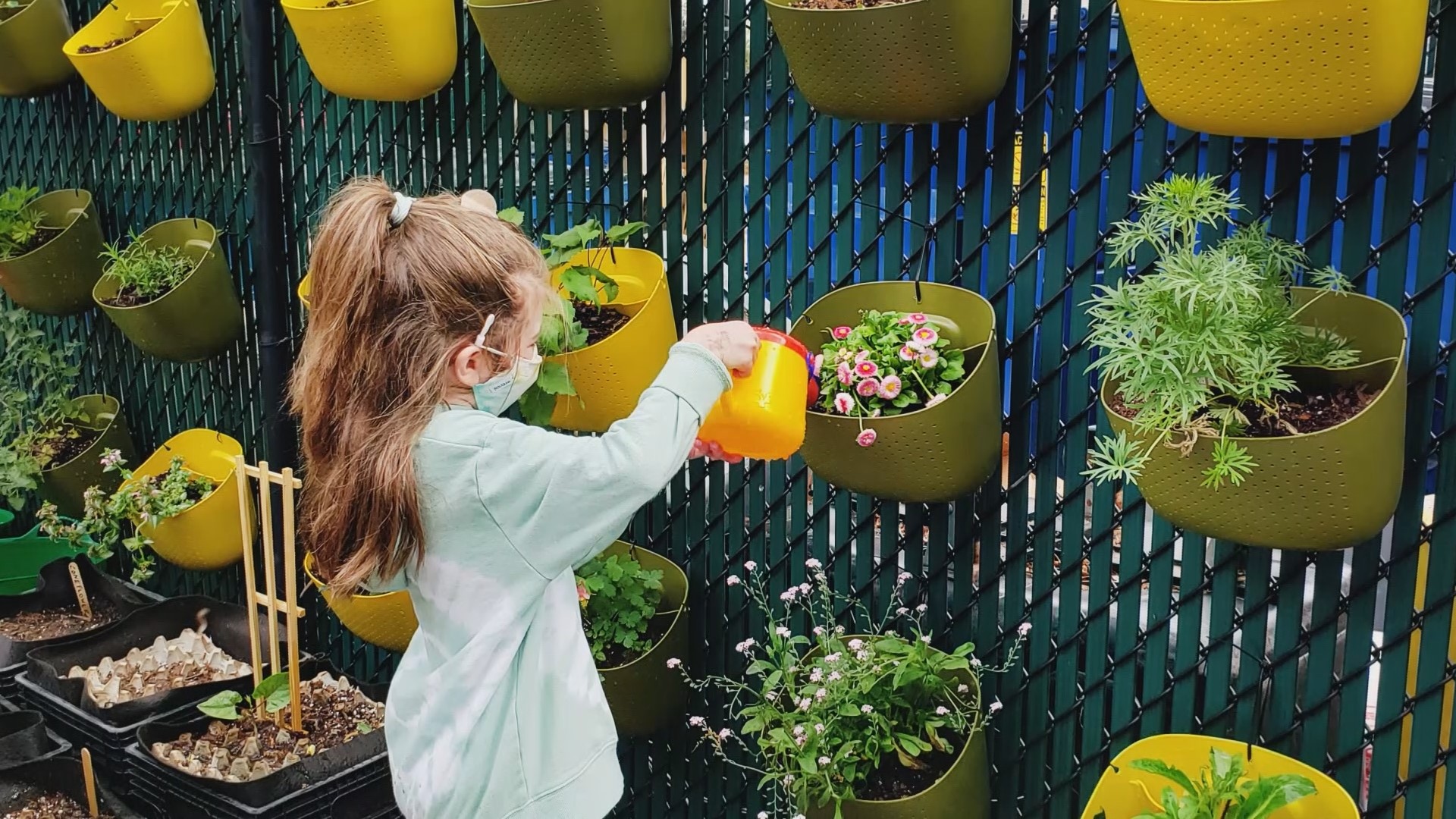WASHINGTON — Every school should have a garden. This is Carissa Tirado-Marks’ philosophy and one she lives by, as sustainability manager at D.C.’s Mundo Verde Bilingual Public Charter School.
Nestled along P Street in Northwest D.C., in this garden plants and children grow together. Out of the soil sprout radishes, an herb bed, a cluster of fig trees, a plant that numbs your tongue (a favorite of the students) and mint (popular among neighbors).
The garden doubles as a classroom, a space of growth and transformation for the elementary students whose education centers around the earth. Tirado-Marks helps cultivate what she hopes will be a lifelong relationship between her students and the planet.
Pre-K students learn about trees. Kindergarteners study vegetables. Third graders discover the complexities of water usage, a curriculum shaped by Mundo Verde’s 25,000-gallon water system, which fuels the building’s faucets, flushes its toilets and feeds its garden hoses. Fifth graders rotate to sell produce at a weekly market.
It’s not a light endeavor, teaching kids about the planet. The fresh vegetables these students grow are hard to come by in parts of their own city. The frequency and intensity of severe weather events show climate change is already impacting their homes.
Every day, Tirado-Marks faces a challenge many parents find tough to address: how to equip students not only to care for the Earth, but to save it. Tirado-Marks says this form of education should be a positive one.
“We want to give [students] information so they can make good choices and good decisions,” Tirado-Marks said. “But we don’t want to make it so that they are not able to function or they’re scared to the point where they can’t take action, because this is the next generation of environmental activists.”
Tirado-Marks manages Mundo Verde’s school gardens on its 8th St. and P St. campuses, as well as the school's compost program, waste initiatives, cooking and gardening classes and learning experiences.
A weekly highlight: running the bustling garden market, where fifth graders sell locally sourced produce to family, friends and neighbors. Colin Waters, a fifth grader, says the market has been a blast.
“When I work there it just makes me feel really good,” Waters said. “It makes me feel important, like I’m helping a lot.”
In the garden, Waters loves to look for bugs and munch on bok choy. He believes we should all be picking up more trash.
“Sustainability keeps the world intact,” Waters said. “If we didn’t have sustainability, it would be falling to pieces.”
Mandolyn Brown, a student at Mundo Verde, patiently explains why it’s so important to buy food that is grown nearby.
“If it’s shipped from far, far away it can usually use a lot of fuel, but if it’s local it won’t use as much fuel. Also, it’s better to eat things in season, because usually that requires less pesticides and things,” Brown said.
The garden is a space for all kinds of lessons, not only climate-related topics. Through the garden market, fifth graders learn about money management and customer service. Behind the table lined with goods, Tirado-Marks watches her students transform.
“It’s really exciting because sometimes they come here and they’re really nervous or unsure of themselves and then by the end they’re usually really proud that they accomplished it,” Tirado-Marks said.
Among the most critical lessons Tirado-Marks teaches is one many students are familiar with: sharing.
That mission is apparent as soon as you walk in. The garden gate is never locked, and neighbors know they can help themselves -- many do.
The Mundo Verde's produce may spread a few blocks beyond school walls. Tirado-Marks hopes her students' knowledge will make it much further. She teaches her students how to share the information they learn: be kind, be inviting. Welcome people in, don’t scare them away.
“Seeing the kids be so energetic and excited about the process of being part of the solution, it does give me a lot of hope,” Tirado-Marks said.
When we ask about the garden, third-grader Eva Zongo beams.
“Plants aren’t just helping us breathe, not just food,” Zongo said. “It’s not just plants, it’s a way to connect. It’s a way to have a community.”

